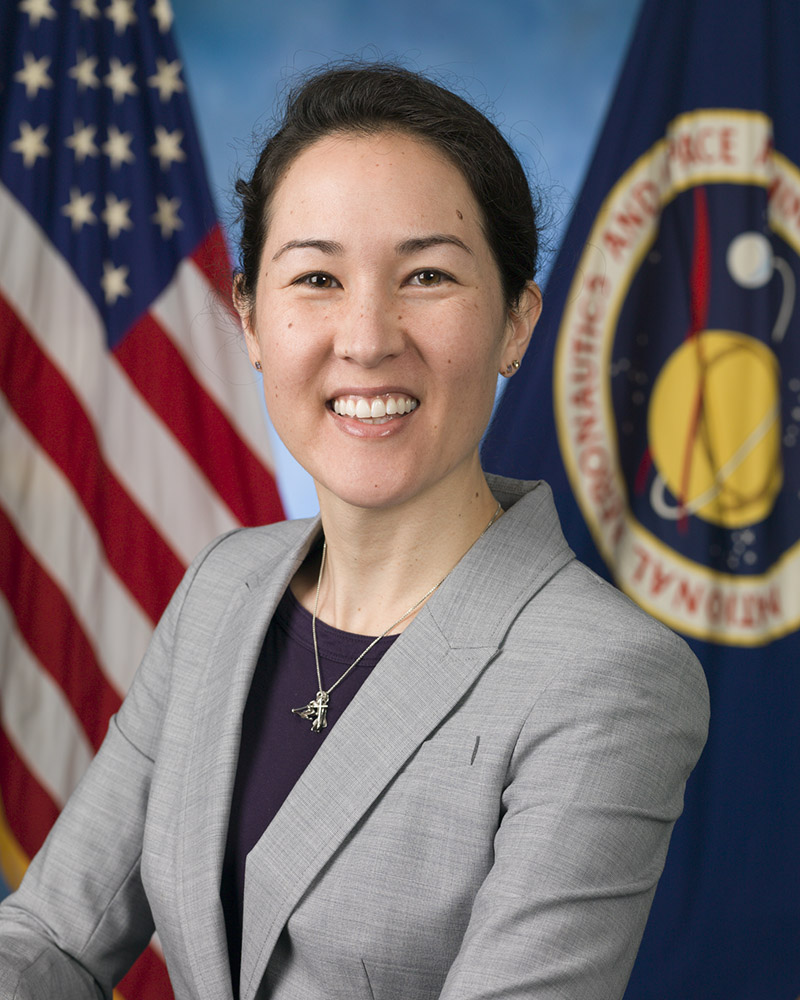Practicing Medicine on the Final Frontier

We’re excited to share career insights from Cooke Scholar Alumni as part of our Cooke Conversations blog series. For our first post of 2019, we speak with Cooke Scholar Natacha Chough, who completed her M.D. at the University of Michigan Medical School in 2010. Natacha is now a Flight Surgeon at NASA-Johnson Space Center. Read below to learn about how she achieved her dream job, along with her advice for students interested in aerospace medicine!
What are you up to these days?
I work at NASA as a Flight Surgeon, which is a medical doctor who takes care of astronauts and provides medical support from the ground for their spaceflight missions. Contrary to my official but antiquated job title, I do not fly in space with astronauts, and am not an actual surgeon (just how the Surgeon General of the U.S. is usually not a surgeon)! I am a Board-certified Aerospace Medicine and Emergency Medicine physician.
What attracted you to your current career path?
As one colleague puts it, aerospace medicine “is like taking care of Lewis and Clark.” Being a NASA Flight Surgeon means keeping astronauts, who represent the best of humanity, healthy enough to do their jobs so they can explore and discover on behalf of all of us. It’s an extremely rewarding feeling to contribute to our human spaceflight program in this way.
How did you find out about the position you currently hold? Do you have any networking or other advice for how to get into companies for either a job or for an internship?
In college, I participated in a summer internship called the NASA Academy. During that summer, I learned that NASA hires physicians and other life sciences professionals to support human spaceflight. That internship had a number of tours and lectures that helped introduce me to and network with more people in the field. My advice would be to always follow up with prospective colleagues and employers, and be persistent (but not annoying). Finding a job is all about who you know, not applying blindly.
What can a person do to test the water before making a career move?
Talk to as many people in the field as you can (see networking advice above)! Start with an internet search and just email or call them if you have to. The worst that can happen is they don’t respond, but if you never take it upon yourself to make the first move, the answer will always be “no.”
Also, Johnson Space Center offers a 1-month Aerospace Medicine Clerkship for 4th year medical students and residents, during which clerks are mentored by a flight surgeon on a research or operational project. The clerkship also includes tours of NASA facilities and space medicine lectures.
How would you describe a student who would excel in this career?
Students who are energized by solving complex problems that involve multiple disciplines outside of medicine would excel in this field. We often interact with engineers, safety personnel, microbiology, toxicology, military, and international colleagues, just to name a few, in order to address any given issue.
Another important aspect that has been a pitfall for prior students interested in aerospace medicine is how to interact with a high-profile patient population. One must not only have strong clinical medical skills to be a competent physician, but also possess strong social skills, appropriate discretion, and emotional intelligence to foster the trust of one’s patients. This latter skill set is not one that can easily be taught, so students who innately get along with and are trusted by others, and are good team players, will do well in aerospace medicine.
What do you find most challenging about being a NASA Flight Surgeon?
No one else does what we do at NASA. The hardest part about my job is that even after 60 years of human spaceflight, there are still unknowns. Because of this, decisions sometimes have to be made with incomplete data or insufficient information, which can be a daunting task when it comes to crew health and safety. In these cases, we carefully review what we do know (including lessons learned from prior situations), involve relevant subject matter experts, and look to find similarities in other processes to come to the safest and best decisions we can, balancing all risks and benefits. Knowing we have done our due diligence to keep crew flying safely makes this challenging aspect of our job a rewarding one, as well.
How has being part of the Cooke Scholar community inspired or supported your career?
I am so indebted and grateful to Uncle Jack and his Foundation! Being a Cooke Scholar validated my unusual career choice in aerospace medicine and gave me confidence that what I was passionate about is a worthwhile form of public service to pursue.
Additionally, the financial burden of a medical education can delay or restrict one’s career options. Being chosen as a Cooke Scholar kept me out of hundreds of thousands of dollars’ worth of medical school debt while working to achieve my goals without having to take any time out to pay back loans.